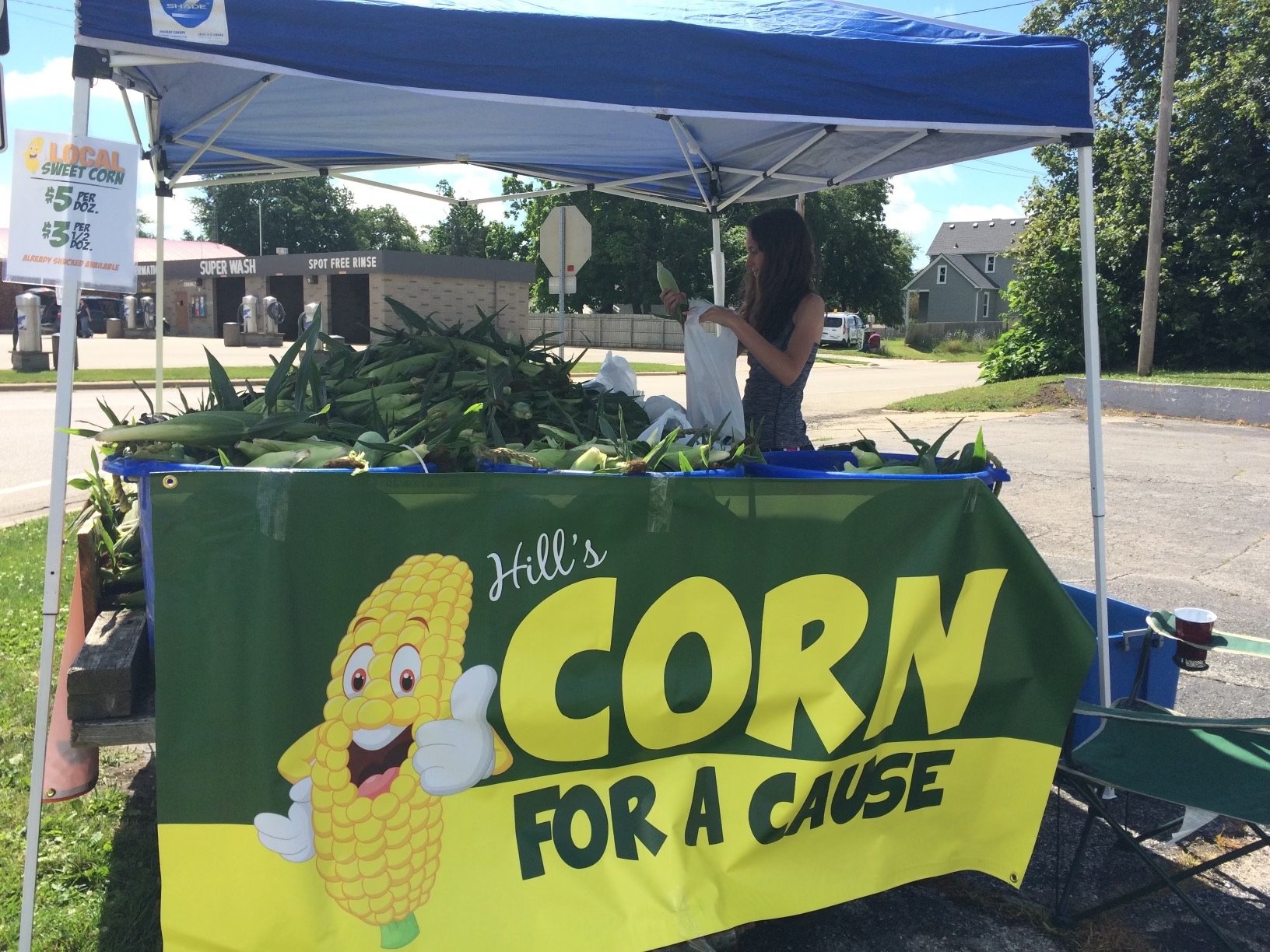Corn for a Cause
How a desperate situation was made better by sweet corn
Sitting near their small town’s sole stoplight, El Paso area volunteers spent long summer days selling sweetcorn. There was heavy August heat, but they weren’t complaining. The day-shifts were a luxury compared to the muddy, sweaty, early morning shifts other volunteers spent harvesting the corn by hand.
Krista Roth bags corn.
Krista Roth and Bria Barker work the stand at the four-corners.
In 2016 an El Paso farmer, Frank Hill, donated 5 acres of sweet corn to Can Do Kids. To aid the water crisis in Kenya, CDK spent two summers recruiting volunteers to raise money by harvesting and selling sweet corn. Laborious work, it was deemed worthwhile knowing the profit would help the students and teachers at Ngaru Primary.
For a student at Ngaru Primary, life might look something like this…
You are a 9-year-old student. You are a grade behind the other 9-year-olds because you missed so much school. Your mom was too busy taking care of your younger siblings to work and your dad’s labor brought home less than $3 a day, so there wasn’t always money for your school fees. But that’s ok. Even though you liked to learn, school had left you uneasy.
Last year, you and your classmate were sent down the hill to fetch water. It was tiring for someone your age, but the older students were testing, so there was no other option. After making your way down to the muddy river, you and your friend saw that you weren’t alone. There were several men whose cold eyes locked with yours and whose slurred speech was hard to understand. Soon, they started raising their voices at you and coming closer. Stunned and not knowing what to think, you dropped your bucket and ran all the way back up the hill.
You and your friend were safe from those men, but your friend, who hadn’t eaten breakfast, passed out. You weren’t too worried though; you had seen students pass out before. Still, you hustled to get help for your friend from the nearest teacher. It took some time, but your friend woke up and was given some bites from a teacher’s lunch. The head teacher came in and said that a teacher must accompany the students from now on. You and your friend were somewhat relieved, but you hoped they would never call on you again to fetch water.
To someone who grew up with water fountains, lunch milks and soda machines, this story might sound foreign or even far-fetched. And yes, this story itself is fiction. But a scenario like this might not actually be as far from fact as you’d like to think.
In our meeting with the headteacher at Ngaru, he sighed, saying that the hardest part of his job was watching students pass out from hunger. Teachers had to plan their lessons knowing they would lose precious class time to accompany the students on the long, hilly trek to their water source, a muddy stream. Because of the bandits and drug addicts who used the stream as their hideout, it wasn’t safe for the kids to go alone. Topping these factors with the fact that a number of Ngaru’s students lived in extreme poverty, it was clear that providing an education here was a major challenge.
In 2016, more than one-third of Kenyans were below the poverty line, living on less than U.S. $1.90 per day - Borgenproject.org
Back in Illinois, the harvest season was coming to a close. Counting up the profits from the street-sold sweet corn, there was good news - there was enough money for a tank! Knowing their desperate situation, funds made their way to Ngaru Primary.
Fast forward to the summer of 2016, and a group was on their way to celebrate the corn-sponsored commissioning at Ngaru Primary. It would be a unique celebration because this group included eight musicians, five of them students from 12 years old to college, who would share their talent to enhance the memorable day.
Packed with hundreds of people, crowds dancing joyfully and the music group playing for all to hear - it was a one-of-a-kind celebration. Even brighter than the loud music or hot sun, hope radiated through the faces of the crowd: parents thinking their children might get the education they need to really go somewhere, teachers happy to get back their precious class time, students relieved to be making no more treks - there was so much to celebrate!
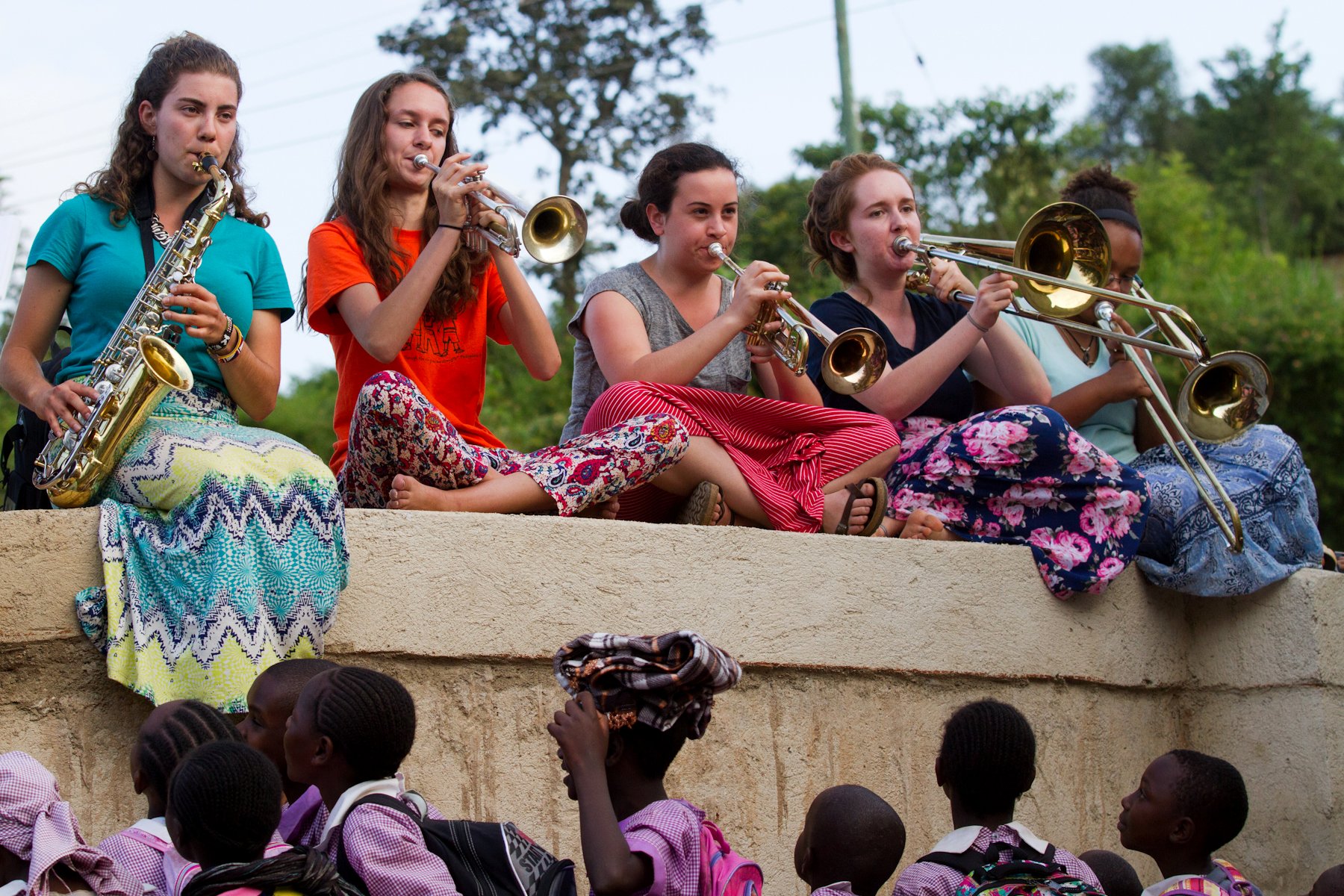
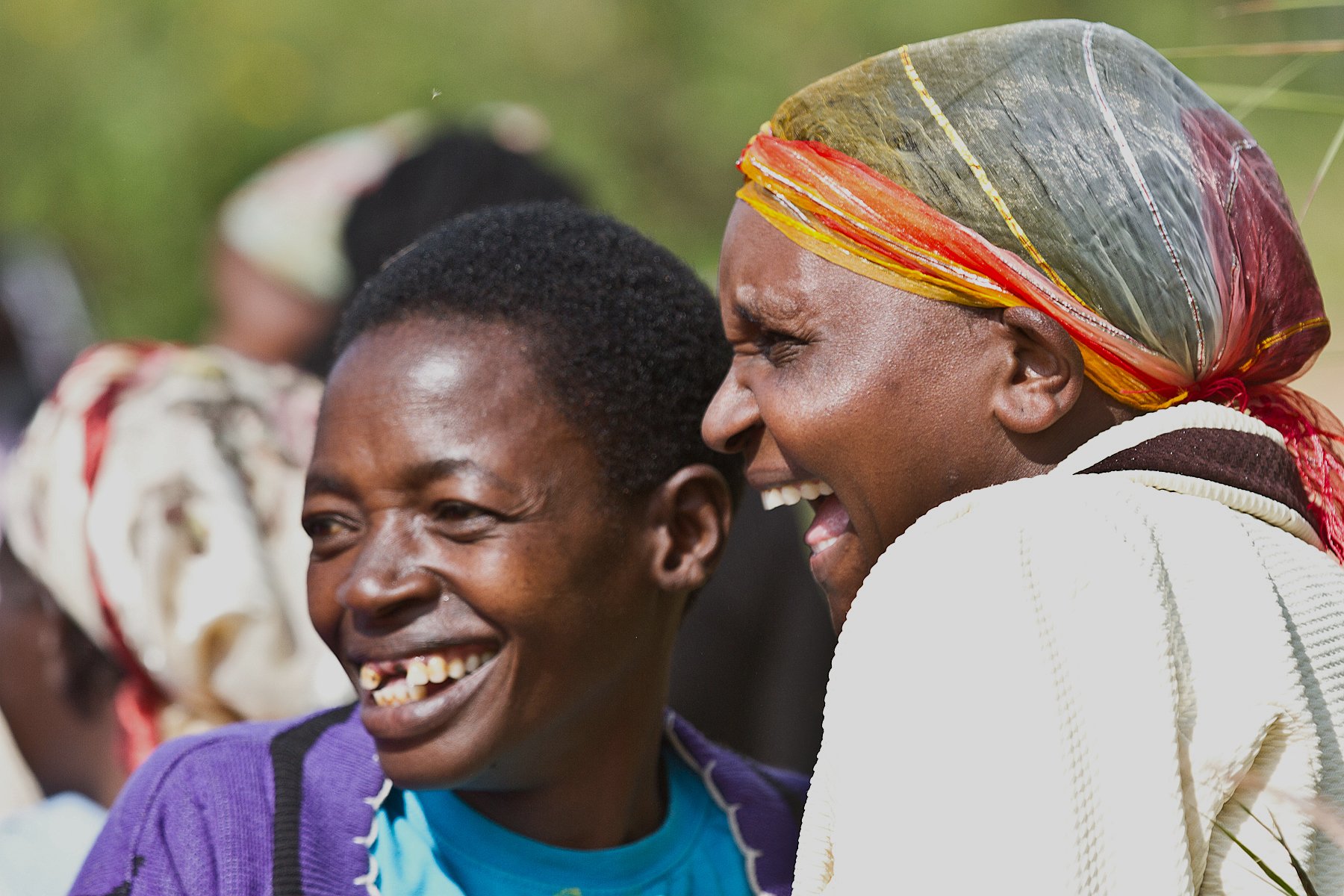
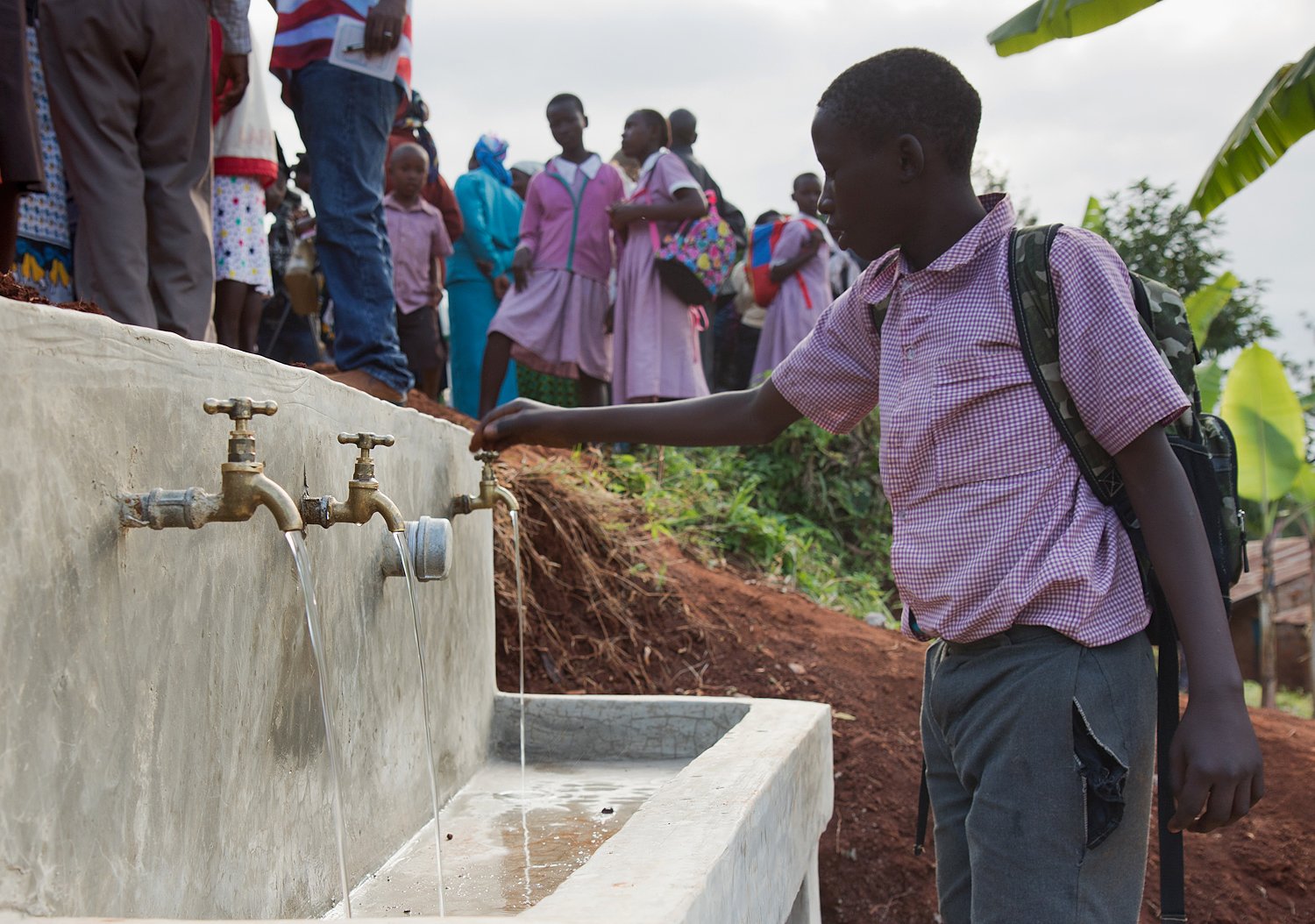
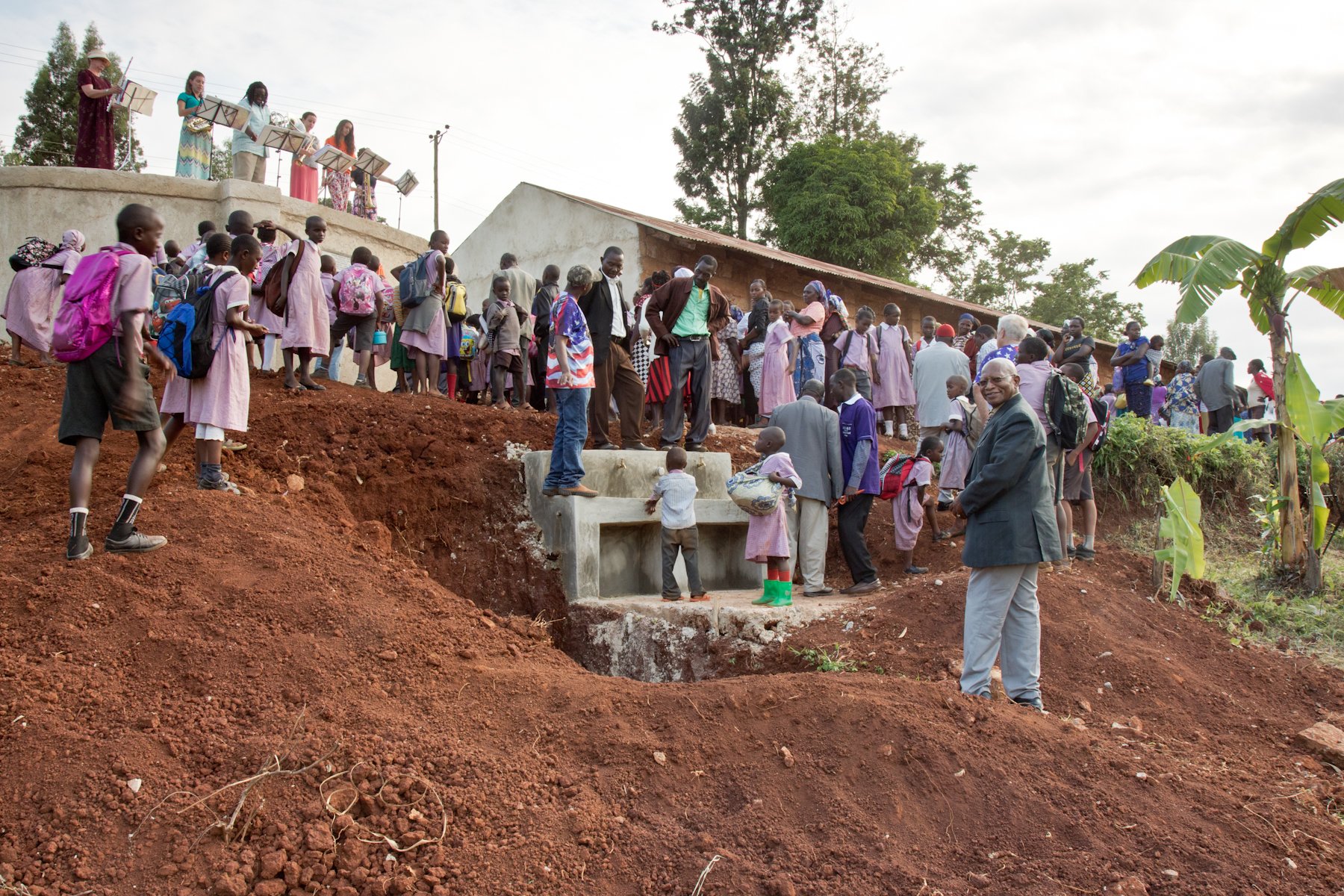
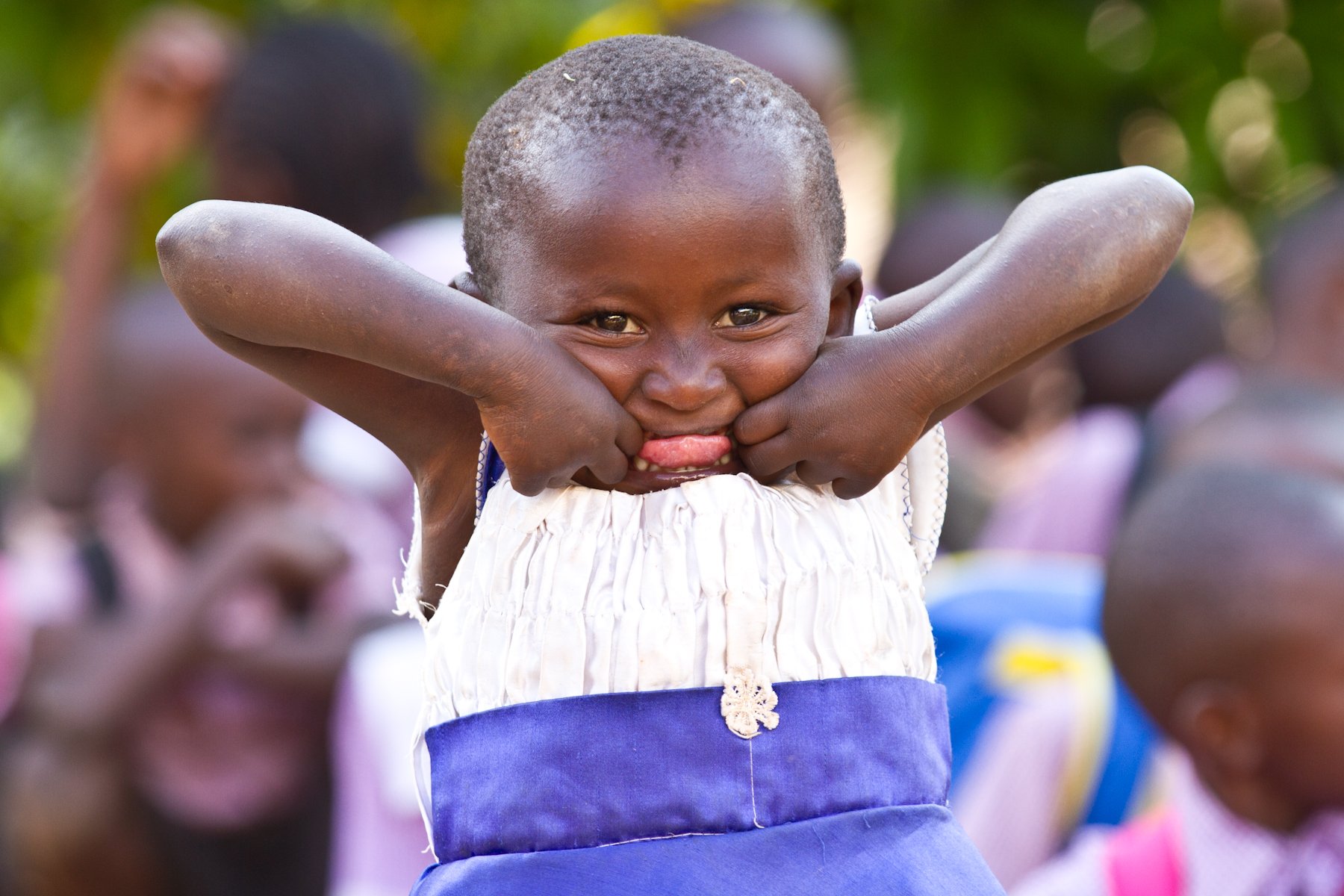
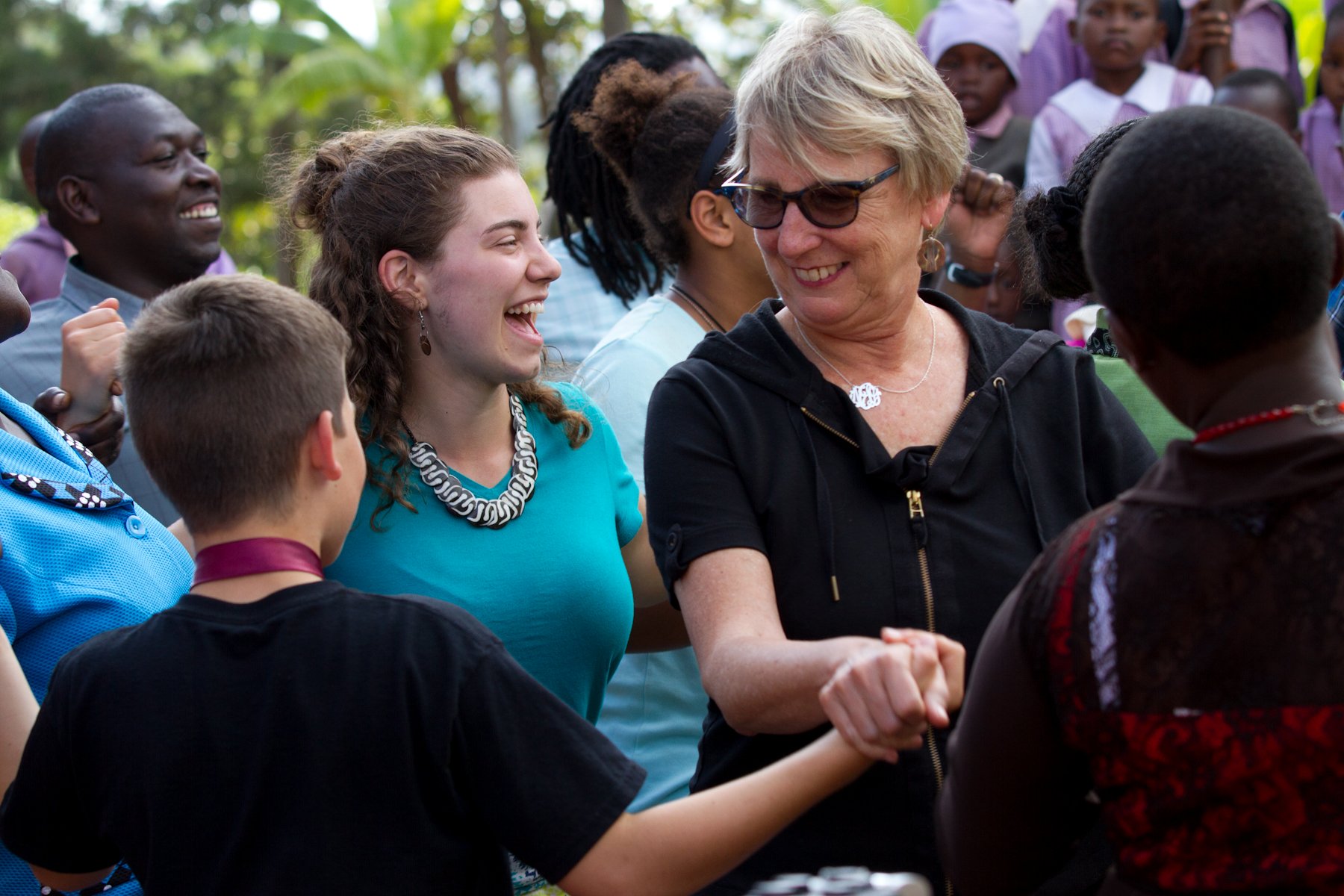
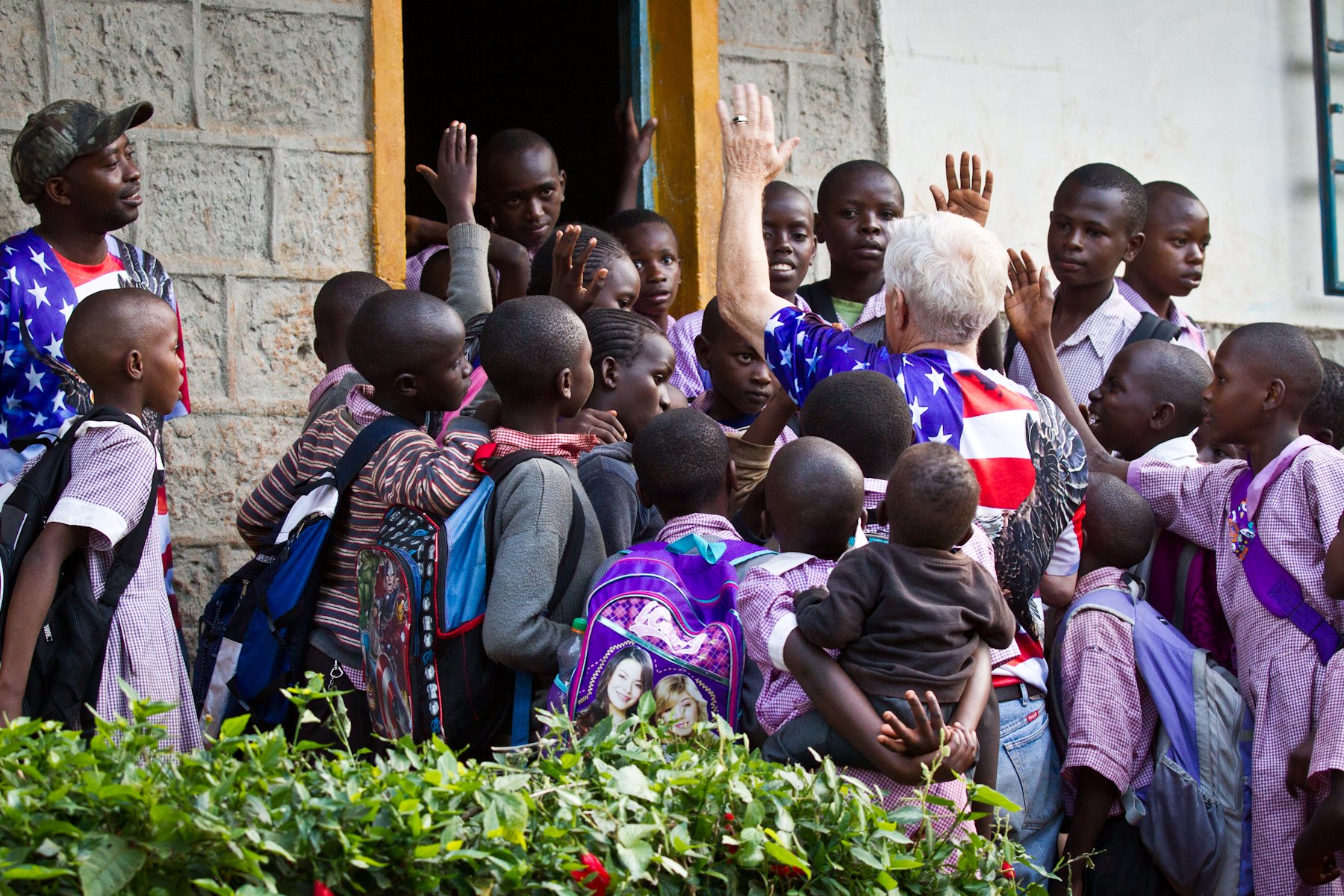
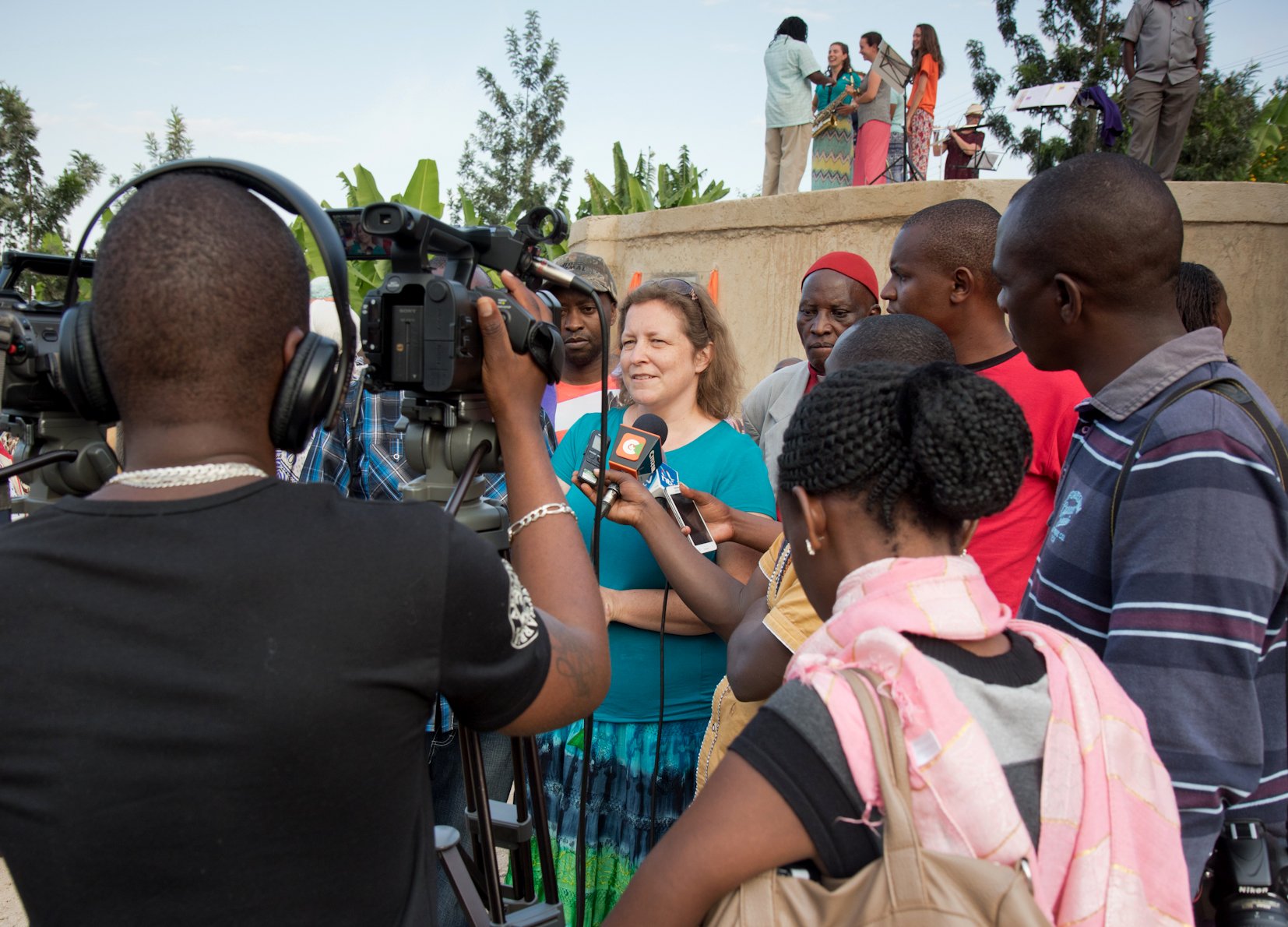
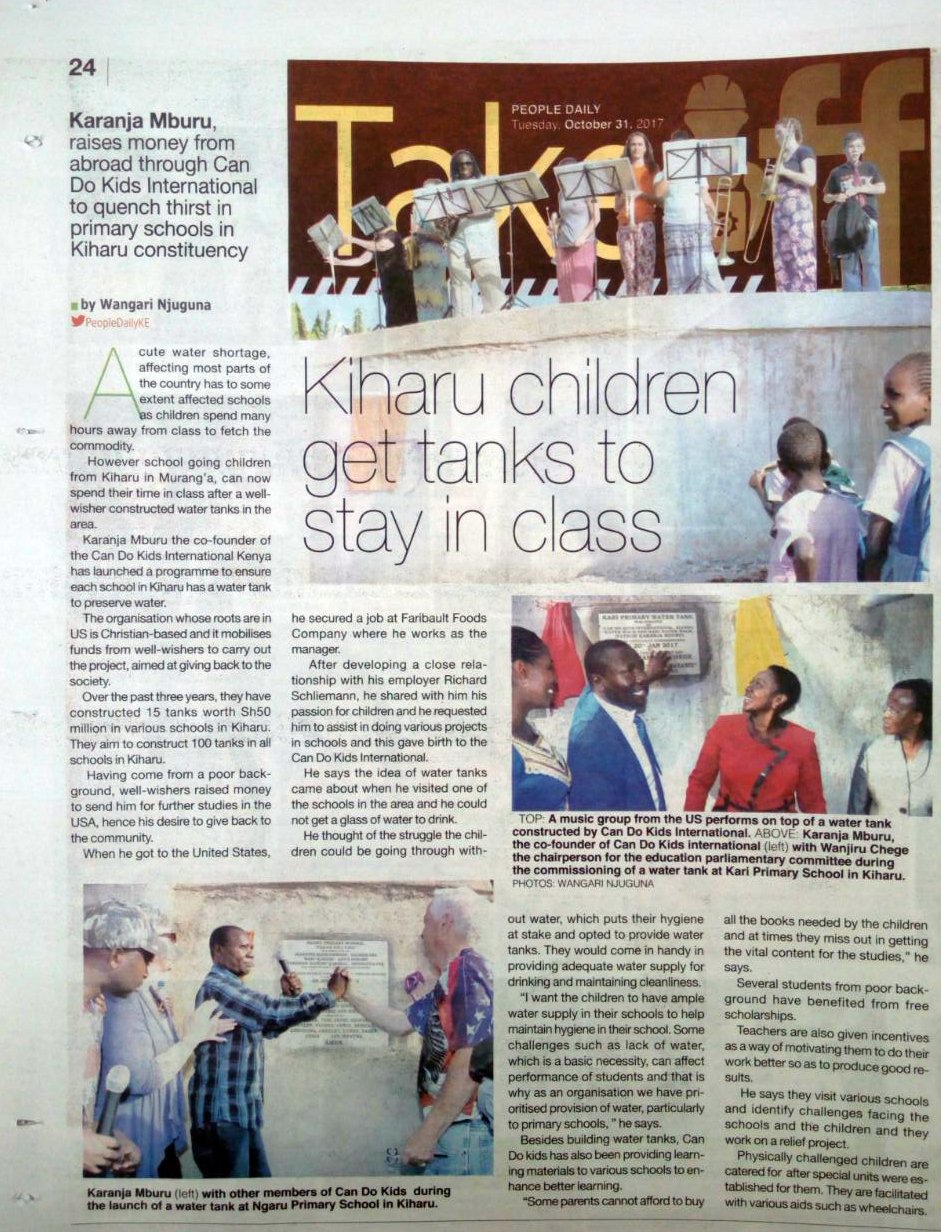
No more treks. No more bandits. No more thirst. Big obstacles had been removed at Ngaru Primary. There would still be challenges to overcome, but thanks to the corn-sponsored tank, the students could face them with thirst-quenched bellies, cleaner classrooms and more time in class.


